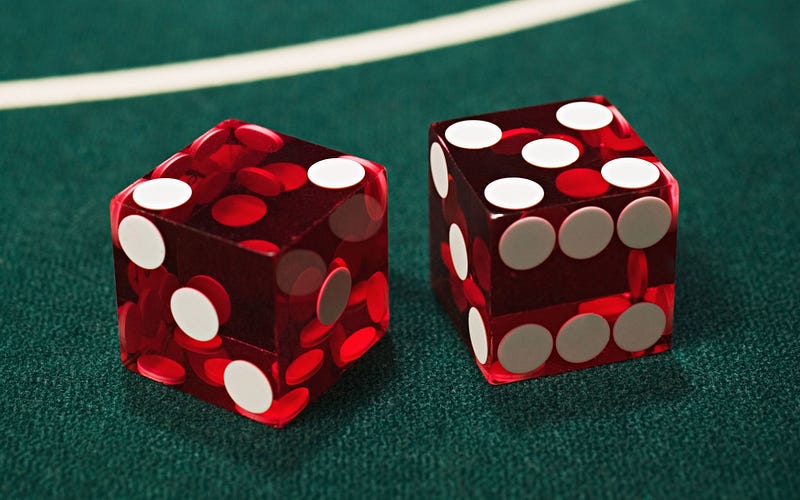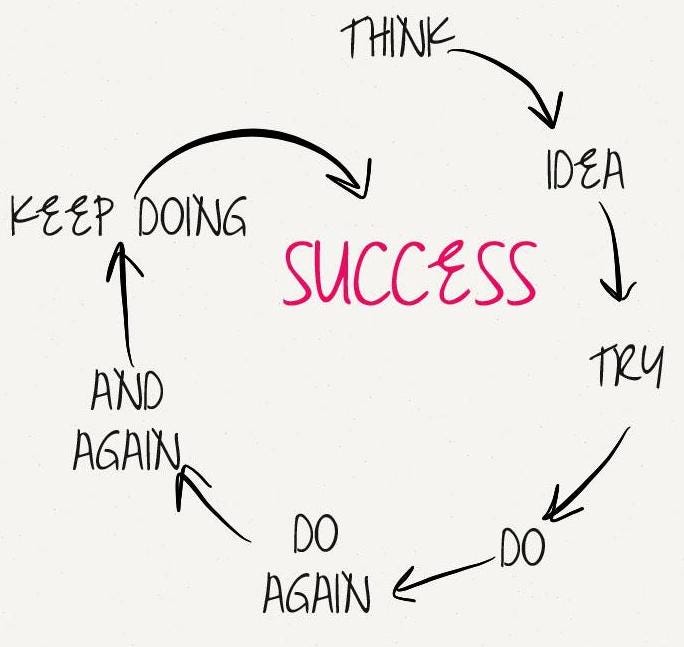LUCK??? SORTE ???? Yeahh.. right!!! Claro!!!

Please stop misusing the word “Luck”
“OMG! You’re So Lucky!”
In the amazing journey I’m taking with my startup Swayy (first NYC, and now Berlin) I get the chance to meet a lot of new people, and to take part in a lot of interesting conversations.
On one of the recent conversations I had, I spoke about myself working on something of my own, which is something I enjoy doing. Since this is not necessarily true for most people – The other person immediately perceived me as being “Lucky”.
To be precise “Oh my god, you are so lucky!” was that person’s reaction. I spent a lot of time thinking about this reaction later that night, which led me to write this post.
My current status in life has little to do with luck.
As a matter of fact, describing a person’s life status using the word “Luck” underestimates him and overlooks the bigger picture.
One of world’s greatest athletes Serena Williams described it amazingly:
“Luck has nothing to do with it, because I have spent many, many hours, countless hours, on the court working for my one moment in time, not knowing when it would come”
- Serena Williams
Luck has nothing to do with it (The File Drawer effect)
Overlooking the bigger picture and missing additional facts and data is better known as a File Drawer Effect (affecting a research because some of the studies were never reported).
In life – you only hear about those great stories (or extremely bad ones), which affects your perspective over the statistics of success.
For me, it took almost two years of hard work and a lot of failures in order to get to the point where I’m standing right now.
For the person I was talking to, statistically, I have a 1/1 success rate, and this is why that person mistook it for “luck”.
The File Drawer Effect alters our perspective in many day to day events, and that’s what causes us, as outsiders, to consider luck as a factor of success:
Think of that friend of yours who told you how lucky he was to get the best parking spot. Did he ever tell you about the bad parking spots he got? I’m sure he didn’t.
Statistically, we’ll get a good parking spot once every hundreds of tries.

So What’s Luck Anyway? (Hint: Probability)
My world view is that “Luck” is an occurrence of a positive event against the odds.
The question is, how do you increase your odds to succeed and omit luck from the equation?
To begin with, different people have different odds achieving something they want.
Growing in a rich family, or a city filled with opportunities, might increase your odds to succeed, over people from a lower socioeconomic status. So those “lucky” people actually start their journey to success with higher odds than the rest.
From this starting point we can easily look at our odds to succeed in a mathematical way, using Probability Theory.
If you’ll think about it, for most things in life we can determine our approximate probability.
Let’s say you try to succeed in something that has a 0.1 success rate, and you need at least one success:
- If you only attempt once, you get a 0.1 (or 10%) success rate.
- Two attempts – and your odds will increase to 1-0.9*0.9=0.19
- If you won’t give up, and try 15 times you’ll get a 1-0.9^15=0.79 success rate. Almost 80%. And that’s not too bad.
So in my eyes, a “lucky break” means I succeeded on the first or second attempt. But if I succeed on the 15th attempt, it is no longer luck, it’s persistence – so what do I need luck for?
“Accidents happen. That’s what everyone says. But in a quantum universe there are no such things as accidents, only possibilities and probabilities folded into existence by perception”
- Dr. Manhattan
Luck Only Comes to Those Who Try
There is one simple “rule” that is pretty clear – eventually, if you won’t try at all, you won’t even get the 0.1 success rate. Luck doesn’t help those who are afraid to try or who give up in advance.
Lets say everyone gets the same chance of meeting that “one in a thousand” person you were looking to meet. So yes, you can get lucky and meet that person on your first try.
But meeting him/her is still under your control – Go out and meet as many people as you can. I guess 1000 people would suffice.
Remember that entrepreneur that met his investor in that meaningless meetup? What’s the difference if this happened on his first meetup ever or on his 50th? Go to as many meetups as you can – Increase your odds. It’s up to you.
I let this way of thinking guide me – Go out and tell your story to as many people as you can, ask for question, introductions etc.
I do marketing, and finding a successful marketing strategy is hard – not all attempts will lead to a good ROI – but you cannot stop on your first or second try.
If you generate one success every ten tries – go out try ten different strategies.
Some people have better starting points than others, and some fall into situations you might not have been “lucky” enough to fall into. So those people have bigger odds to begin with.
It’s up to you now to understand how to increase your odds. If there is anything to be learned from Probability Theory – it’s that you should do more and try more. Go out and increase those odds.



Comments
Post a Comment